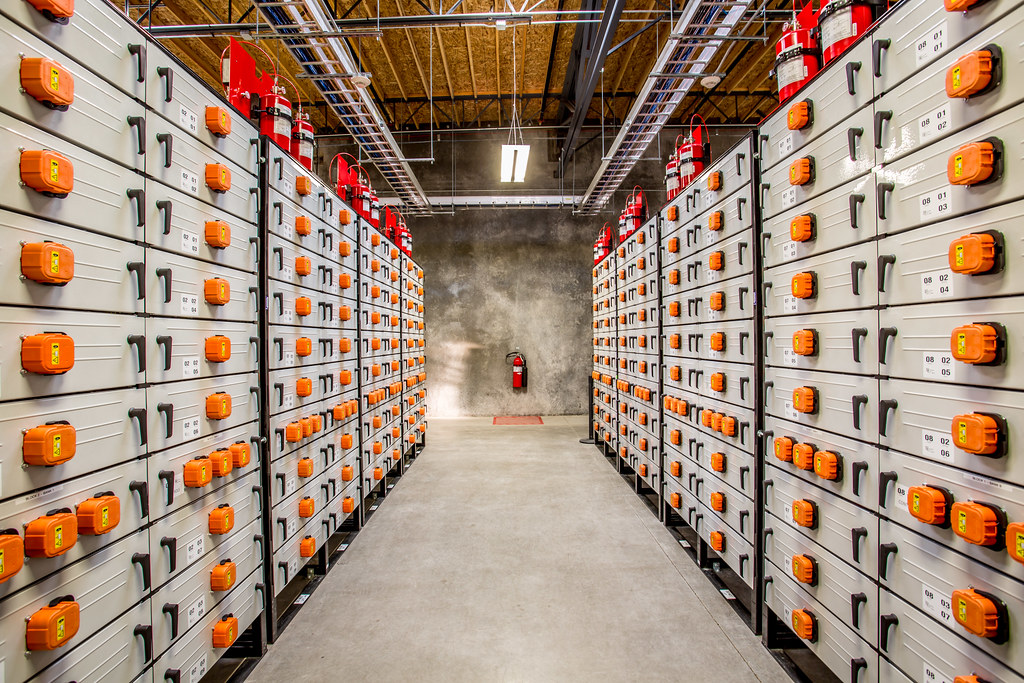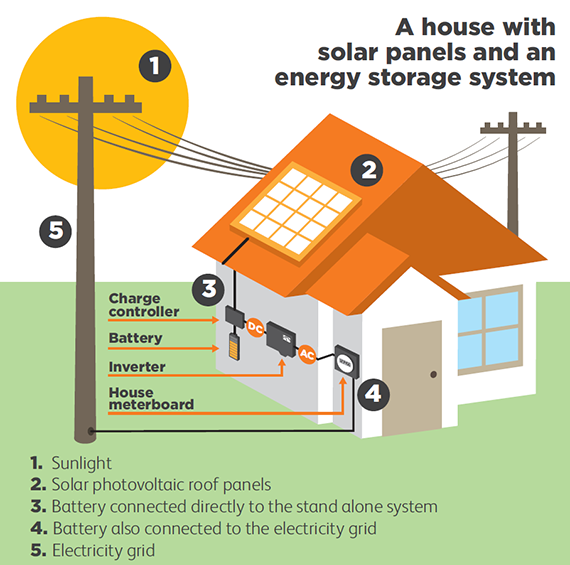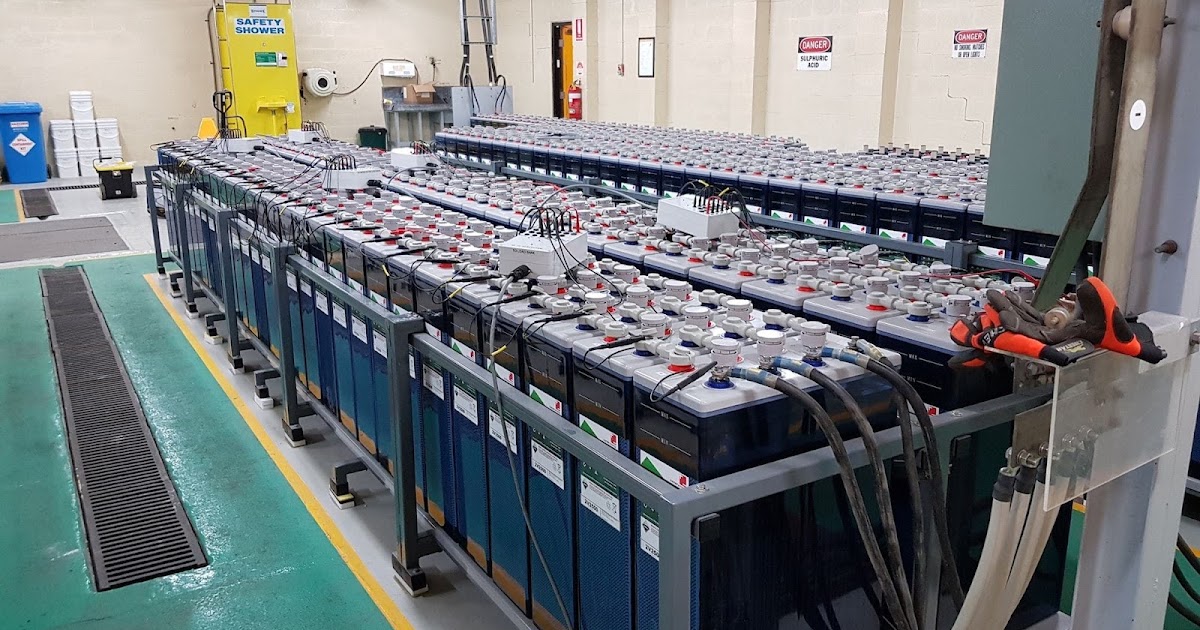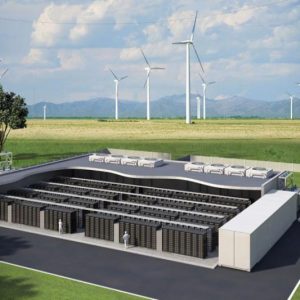In today’s world, the demand for renewable energy sources is growing at an unprecedented rate. As more and more people seek to reduce their carbon footprint and embrace sustainable living, the limitations of the traditional power grid become increasingly apparent. This is where home energy storage comes in as a game-changer.
The Growing Demand for Renewable Energy Sources
Renewable energy sources like solar and wind power are experiencing a surge in demand due to their environmental benefits and potential cost savings. Homeowners are actively seeking ways to reduce reliance on fossil fuels and embrace clean energy alternatives.
Solar and wind power produce minimal greenhouse gas emissions, reducing the carbon footprint. Additionally, installing renewable energy systems can lead to long-term cost savings on energy bills. Government incentives and innovative financing options further promote the adoption of renewable energy solutions.
The growing demand extends beyond households, with businesses and communities also embracing sustainable alternatives. Overall, the shift towards renewable energy is driven by a desire for a greener future and economic advantages.
The Limitations of the Traditional Power Grid
The traditional power grid has its limitations, particularly when it comes to handling fluctuations in electricity supply and demand. During peak times or extreme weather events, the grid struggles to cope, leading to blackouts or brownouts. These interruptions can inconvenience homeowners and result in potential financial losses.
Additionally, an aging infrastructure further exacerbates these limitations, making upgrades necessary but costly and time-consuming. Recognizing these drawbacks prompts us to explore alternative solutions for a more stable and sustainable energy future.
Introduction to Home Energy Storage as a Solution
Home energy storage systems provide a solution to the limitations of the traditional power grid by allowing homeowners to store excess electricity generated from renewable sources. These systems typically consist of batteries that store the excess energy produced during times of low demand or high generation.
By integrating home energy storage systems into residential properties, homeowners gain greater control over their electricity consumption patterns and reduce reliance on the traditional power grid.
This not only allows for increased self-sufficiency but also contributes to a more sustainable future by maximizing the utilization of renewable resources.
The key components of a typical home energy storage system include batteries, which can vary in type, such as lithium-ion or lead-acid, and associated equipment for monitoring and controlling stored energy.
With these systems, homeowners can optimize their energy usage, achieve greater self-sufficiency, and have an independent source of backup power during outages or emergencies.
Overall, home energy storage offers an effective solution to address the limitations of traditional power grids while harnessing the potential of renewable energy sources. As demand for clean and reliable power grows, these systems are poised to become an integral part of a sustainable future.
Definition and Components of a Home Energy Storage System
A home energy storage system consists of three primary components: the battery pack, an inverter, and a monitoring system. The battery pack stores excess electricity generated by solar panels or other renewable sources.
The inverter converts this stored DC (direct current) electricity into AC (alternating current) electricity that can be used to power household appliances. Lastly, the monitoring system allows homeowners to track their energy usage and battery performance.
Together, these components enable households to optimize renewable energy utilization, reduce dependence on traditional power grids, and make informed decisions about energy consumption.
Battery Technologies Used in These Systems
Lithium-ion batteries are the most commonly used battery technology in home energy storage systems. They offer advantages such as high energy density, longer lifespan, and faster charging capabilities. These batteries are reliable and efficient for storing excess electricity generated from renewable sources like solar panels or wind turbines.
While lithium-ion batteries dominate the market, other battery types like lead-acid, flow batteries, and sodium-ion batteries have their applications. Lead-acid batteries are still widely used for off-grid applications due to their low cost.
Flow batteries excel in providing long-duration storage solutions while sodium-ion batteries show potential in terms of cost-effectiveness and environmental sustainability.
In summary, lithium-ion batteries remain the primary choice for home energy storage due to their high energy density, longer lifespan, and faster charging capabilities.
However, other battery types have their unique applications depending on specific requirements and constraints faced by homeowners or businesses seeking reliable energy storage solutions.
Tesla Powerwall: Revolutionizing the Market
Tesla’s Powerwall has emerged as a game-changer in the home energy storage industry. With its sleek design, advanced monitoring capabilities, and seamless integration with solar power systems, it has become one of the most well-known and sought-after solutions on the market.
The key features and benefits that the Powerwall offers to homeowners are truly impressive. It allows them to store excess electricity generated from solar panels or the grid during off-peak hours, ensuring that no energy goes to waste.
This stored energy can then be utilized during high-demand periods or power outages, providing homeowners with a reliable backup power source when needed.
Not only does this enhance peace of mind during unexpected disruptions, but it also has the potential to save homeowners money on their electricity bills by reducing reliance on traditional power sources.
The success stories and customer testimonials surrounding Tesla’s Powerwall further highlight its effectiveness and impact. Many homeowners who have adopted this innovative solution have reported significant savings on their electricity bills.
The ability to harness and store renewable energy for later use has proven to be not only financially beneficial but also environmentally conscious.
By leveraging lithium-ion battery technology, Tesla has paved the way for a more sustainable future in home energy storage. The Powerwall exemplifies the company’s commitment to revolutionizing the market by providing homeowners with an efficient and reliable means of harnessing clean energy.
Sonnen: Pioneering Sustainable Solutions
Sonnen is a leading player in the home energy storage industry, known for its innovative ecoLinx technology. This system combines energy storage, home automation, and intelligent energy management to maximize efficiency and promote self-sufficiency.
One standout feature of Sonnen’s ecoLinx technology is its intelligent optimization of energy usage based on homeowners’ consumption patterns. It integrates with smart home devices, allowing users to remotely control their energy usage and make informed decisions about power consumption.
Case studies have demonstrated how Sonnen’s ecoLinx technology helps households achieve greater energy independence, reduce their carbon footprint, and save money on electricity bills.
In summary, Sonnen is at the forefront of pioneering sustainable solutions through its ecoLinx technology, offering advanced features that prioritize efficiency and empower homeowners to actively participate in creating a greener future.
LG Chem: High-Quality Solutions at Affordable Prices
LG Chem is a prominent player in the home energy storage market, offering high-quality solutions at affordable prices. Their RESU series batteries are known for their compact size, long cycle life, and competitive pricing. These batteries provide homeowners with a reliable and cost-effective option for storing excess renewable energy.
They are compatible with various solar power systems and offer easy installation and maintenance. Customers praise LG Chem batteries for their performance, durability, and cost-effectiveness in achieving energy independence while reducing reliance on the traditional power grid.
Investing in home energy storage companies like LG Chem offers benefits such as control over energy consumption, reduced dependence on fossil fuels, and financial savings by avoiding peak electricity rates. LG Chem’s commitment to quality and affordability makes them a top choice for homeowners seeking sustainable energy solutions.
(Note: The paragraph has been condensed to provide a shorter version while maintaining the key points.)
[lyte id=’EoTVtB-cSps’]







